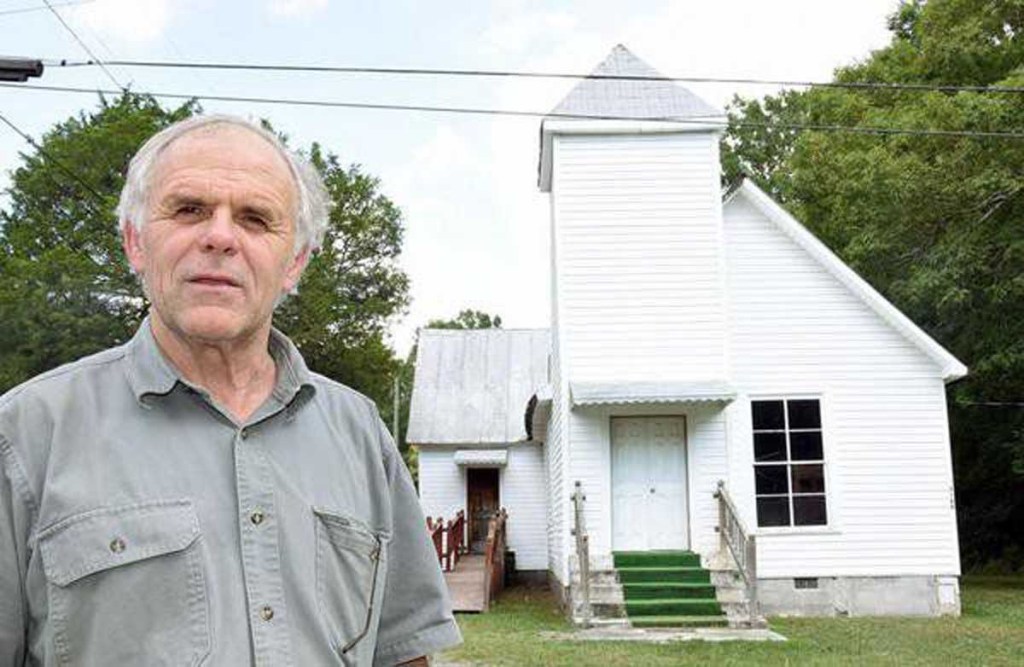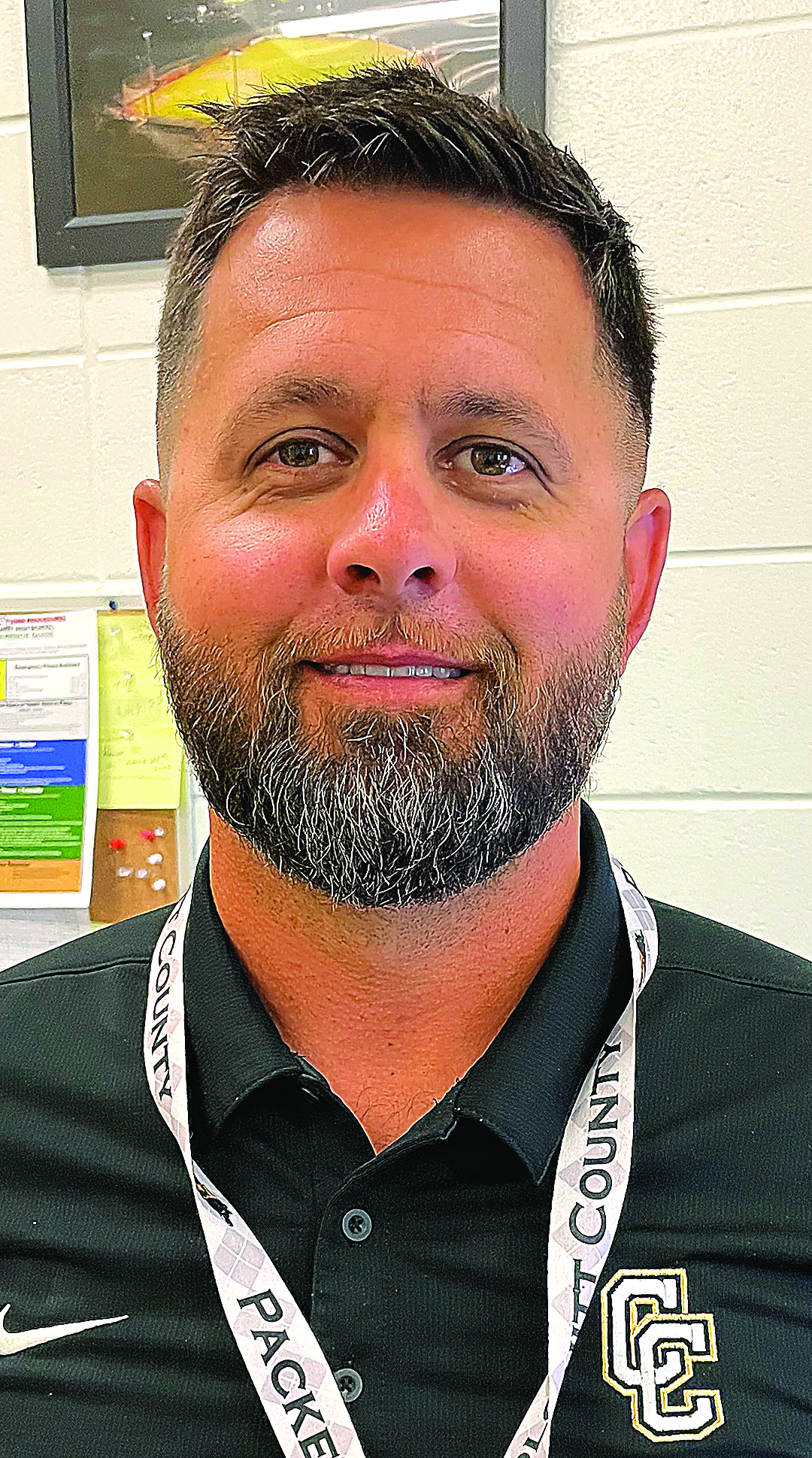For small cities, SPLOST can bring big money
Published 8:12 am Monday, March 11, 2019

- Matt Hamilton/Daily Citizen-NewsCohutta Mayor Ron Shinnick stands outside the Andrews Chapel. Built almost a century ago, the chapel was once the center of a thriving black community in Cohutta but hasn't been used in several years. The city would use part of its funds from a proposed Special Purpose Local Option Sales Tax (SPLOST) to renovate the chapel and turn it into a cultural center.
DALTON, Ga. — With Whitfield County officials looking to spend $18.2 million of the county’s share of a proposed Special Purpose Local Option Sales Tax (SPLOST) on a new government services building, the city of Cohutta’s plan to spend $50,000 of SPLOST money on a new storage building may not seem that large.
But if the SPLOST passes on March 19, it would fund that storage building and other projects for the county’s smaller cities, something their officials say has sometimes been overlooked in the discussion of the major projects planned by Whitfield County and the city of Dalton.
Trending
“In a $100 million SPLOST, our $575,000 may not seem like a big deal, but it’s a big deal to us,” said Tunnel Hill City Manager Blake Griffin.
Whitfield County residents will go to the polls on March 19 to vote on the proposed 1 percent, six-year SPLOST that would be expected to bring in that $100 million. Early voting started on Feb. 25.
If approved, the SPLOST would begin on July 1 of this year. There is currently a four-year SPLOST that expires on June 30 that is on track to collect its $64 million projection. That SPLOST funded a new emergency radio system for first responders, new firetrucks for both the Dalton and Whitfield fire departments, and the Haig Mill Lake Park that opened last year, among other projects.
Cohutta has received $485,000, Tunnel Hill $700,000 and Varnell $315,000 from the current SPLOST.
Cohutta used $235,000 of that money along with a $315,000 grant from the federal Appalachian Regional Commission to extend sewer to its downtown business area, a move officials hope will bring businesses back to downtown.
“That’s the thing about these SPLOST dollars, we can use them as matching funds to get other grants we wouldn’t otherwise be able to get,” said Cohutta Mayor Ron Shinnick.
Trending
Cohutta would receive $444,536 if the SPLOST passes. The city’s annual operating budget is “right about $310,000,” said Shinnick.
“This will give us the chance to do a lot of projects we wouldn’t be able to do,” he said.
The city would use $50,000 of its share for park improvements.
“That will involve the walking track,” said Shinnick. “It doesn’t have adequate lighting there, so we are going to put good lighting there. We also have a pavilion at the park. But we have no bathrooms, so we are going to put bathrooms there.”
Shinnick said both the walking track and the pavilion are well used. But the planned changes, he said, should make them even more attractive to city residents.
Cohutta’s largest share of the SPLOST, $150,000, would be used to repair some of its historic city-owned buildings, most prominently the almost century-old Andrews Chapel. The church was once part of a thriving black community in Cohutta, but over the years its congregation shrank.
City officials envision using the church as a meeting place and area for art exhibits and to preserve the city’s black history. Shinnick said they are in the process of getting it on the National Register of Historic Places.
Another $50,000 would go to the new storage building.
“Right now, our garbage truck, our lawnmowers, our tractor are all outside, maybe covered up with a tarp,” said Shinnick. “We don’t have a place to park those vehicles and do basic maintenance. If we can have a place to keep them out of the weather, I think we’ll get a lot more life out of them.”
Tunnel Hill would receive $575,678 if the SPLOST passes. Griffin said the city’s annual operating budget is $600,000.
“About $100,000 of the SPLOST is for police cars,” said Griffin. “We obviously would have to find some way to pay for those. But the rest of it will go for projects we could not otherwise do.”
The city would use $355,678 for sewer. The city used $100,000 of its share of the current SPLOST to extend sewer to its commercial district. That project is underway.
“We used that $100,000 as a match for a grant from the Appalachian Regional Commission, so we have $300,000 for that sewer project,” Griffin said.
He said the plan, if the SPLOST passes, is to use that money, and officials hope more grants, to extend sewer into some of the city’s residential neighborhoods where residents are having problems with their septic tanks.
Griffin said the exact areas haven’t been determined. He said that will depend on how much money the city ultimately has for the projects, where the problems are worst and, after talking to Dalton Utilities, where they can get the most coverage for their money.
The city would use the rest of its SPLOST money, $120,000, to extend sidewalks from some of its residential neighborhoods to its city park and to the historic train depot, which is being renovated into a community center, and the Tunnel Hill Heritage Center, which contains a museum of local history.
Varnell would receive $1.202 million from the proposed SPLOST. Its annual operating budget is “about $960,000,” according to Mayor Tom Dickson.
Dickson said some of the projects the SPLOST would fund will not get done if it doesn’t pass.
“Now, some of the projects we want to do will have to get done, even if it doesn’t pass,” said Dickson. “We have to replace patrol cars.”
Varnell would use $278,000 of its share to fund public safety, including “four or five patrol cars, some new equipment and technology upgrades for the police department,” said Dickson.
The largest item in Varnell’s SPLOST plan is $515,000 for parks and recreation.
“One of our goals is to replace the old playground area,” Dickson said. “The things that the kids play on have been there for many years and are becoming unsafe. We want to create a multipurpose field. We’ll probably coordinate with Whitfield County on that. We are becoming an overflow facility for the Whitfield County rec department in some of their activities. It will also provide more opportunities for Varnell citizens. The plan also includes a dog park. Those are becoming more popular, and we think our residents would like a safe, confined place to bring their dogs.”
Varnell would use $309,000 to replace one of its garbage trucks, and would spend $100,000 for sewer expansion.
“We’ve been talking to Dalton Utilities about this. We have one small system in one neighborhood that the city maintains. This would tie that system to Dalton Utilities’ sewer system, and if we have money left over, we’d expand sewer to as much of the rest of the city as we can,” Dickson said.





